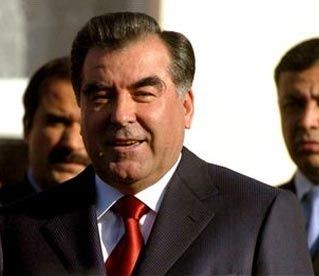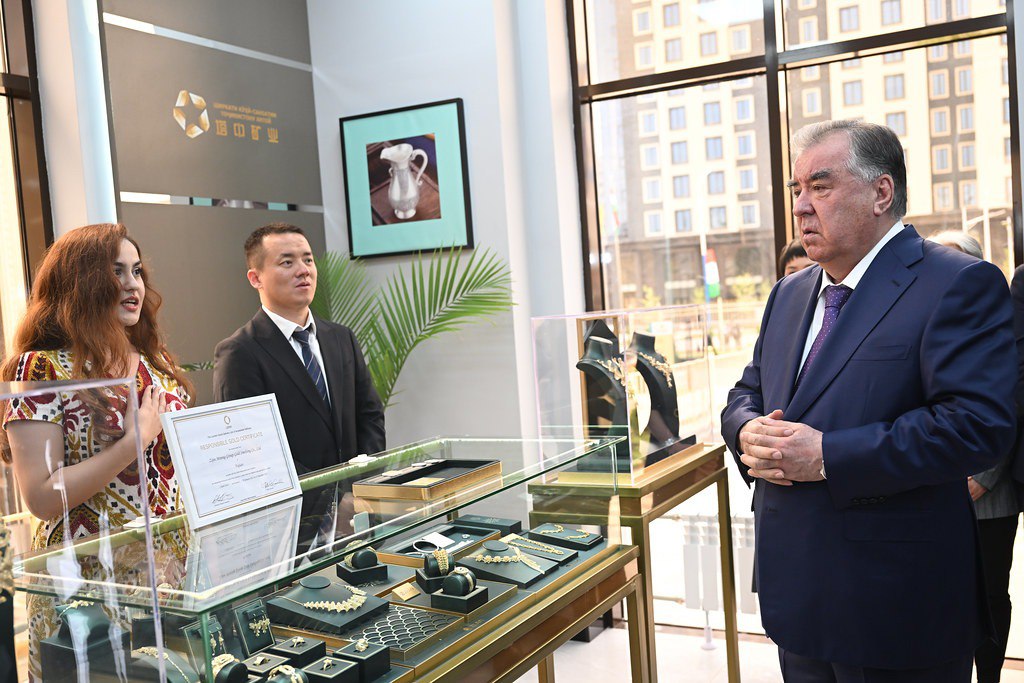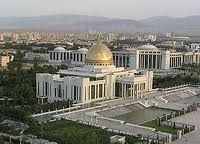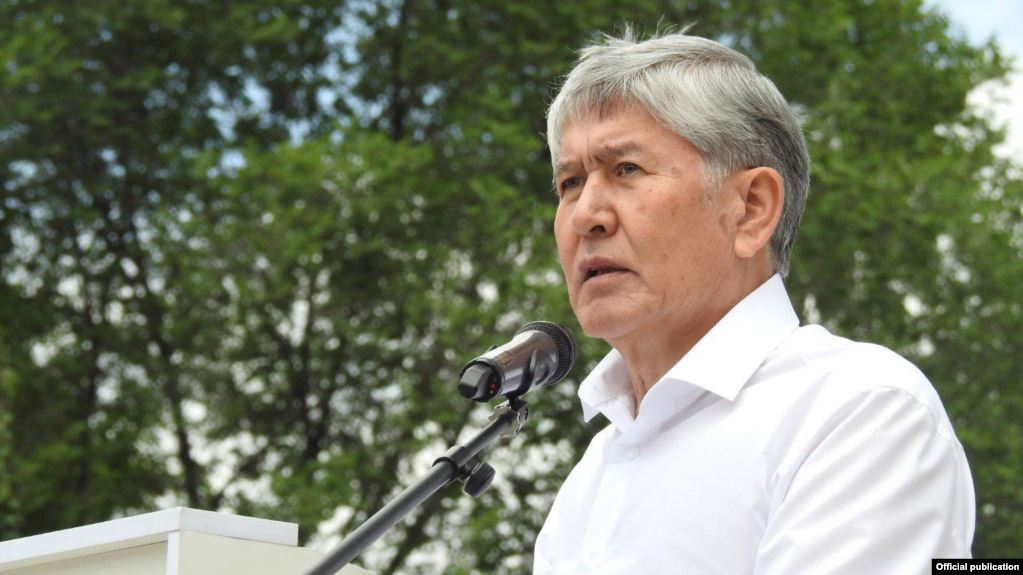DUSHANBE (TCA) — As Tajikistan President Emomali Rahmon has taken a number of steps to consolidate his power in the country in recent months, and years, we are republishing this article originally published by EurasiaNet.org:
On November 16, officials at all levels of government broke into displays of choreographed reverence for President Emomali Rahmon, who rose through the ranks from a lowly collective farm chairman to assume the top spot in the government in the early 1990s, and over the next two-plus decades proceeded to steadily concentrate power in his hands.
Public demonstrations of admiration for the president are nothing new in Tajikistan, but the trend has taken on fresh intensity over the past year. Throughout President’s Day, the Khovar state news agency, as well as other state websites, published articles about Rahmon. One piece made it clear that the holiday is intended to honor Rahmon in particular, and not the country’s leaders, past or future.
“The fact is that 24 years ago, on November 16, 1991, in the Kasri Arbob palace in Khujand, at the 16th session of the Supreme Council of Tajikistan, Emomali Rahmon was elected chairman of Supreme Council (head of state). It was on this very day that constitutional order was resurrected and that an end was put to anarchy and to divisions within authority,” wrote Saidali Siddik, director of Khovar.
The session of the Supreme Council was held in Khujand at that time as the capital, Dushanbe, was in the hands of the armed opposition.
The Interior Ministry interrupted its regular online bulletin of arrests ahead of President’s Day to run several panegyrics to Rahmon and, among other things, announce a competition for the best poem about the nation’s leader. “Participants should know the poem by heart and read them out in a performance on November 16 at 1300 hours in the presence of a jury,” an Interior Ministry statement read.
The same competition was held in cities all across Tajikistan, although no police officers appear to have won, since prizes were all given to schoolchildren. All the same, some 120 people were given awards for taking part in the competition.
Mahmadsaid Ubaidulloev, the mayor of Dushanbe and a loyal ally of Rahmon who has been in his post for 22 years, ordered city workers to install multiple portraits of the president bearing the slogan: “Our President, Our Leader.” There was already no shortage of giant pictures of Rahmon in Dushanbe, but their numbers have now increased substantially.
To mark the holiday, filmmaker Yermahmad Aralev created a two-part documentary about Rahmon titled “A Man of Fate” that was aired on all state channels on November 15 and 16.
The documentary comprised anecdotes related by Rahmon’s associates and well-known officials, as well as a chronicle of the Tajik civil war in the 1990s. The well-rehearsed state narrative on the civil war is that Rahmon single-handedly brought the conflict to an end, although the facts show that fighting intensified in the years after he came to power and ended in 1997, after tens of thousands had died.
Much of the fanfare around President’s Day was directed at schoolchildren. Ubaidulloev gave instructions for a drawing competition entitled, “The President Seen Through the Eyes of Children.” Pupils were also given lectures about Rahmon and his written output, which include more than 20 books about Tajikistan’s history, traditions, language and current politics. (His latest book — The Language of the Nation: The Existence of a Nation — was published in April.)
Displays of Rahmon’s books were arranged in schools, the National Library and museums. Several painting and photo exhibitions were also devoted to the president. Most of the events were mainly aimed at school-age children. In the southern Khatlon region, pupils were bused on visits to secondary school No. 7 in the Dangara district and the vocational lyceum in the town of Sarband, where Rahmon completed his studies.
On military bases, soldiers and officers assembled for celebratory events under the slogan “Loyalty to the President is Loyalty to the Fatherland.”
The custom of creating holidays to commemorate Rahmon’s feats are nothing new. September 29, for example, was earlier this year declared Tajik Diplomat Day. The date marked the 23rd anniversary of Rahmon’s first-ever address to the United Nations General Assembly.
Some of the myth-making around Rahmon is just that. In October, parliament approved changes to the law recognizing the president by the formal title “The Founder of Peace and National Unity of Tajikistan.” Newsreaders now must use this lengthy formulation every time they allude to Rahmon on state broadcasts. The title awkwardly dances around the fact that it was former Communist Party boss Rahmon Nabiyev who was at the helm of government when Tajikistan gained independence.
Advancing the state’s narrative in an interview to Khovar, Rustam Haidarov, head of the Political Science Department at the Tajikistan Academy of Sciences, likened Rahmon to George Washington, the first president of the United States. The institute of the presidency was only truly formed when Rahmon came to power, Haidarov said.
“After our country gained independence, the civil war began. In such a difficult situation, only a presidential system of government could save us from war, and Emomali Rahmon was, at the time, able to pursue the right political path,” Haidarov argued.
He added that the creation of a President’s Day was in line with custom in the United States, which celebrates its own President’s Day every February. Unlike in Tajikistan, however, the US created its holiday to commemorate the birth of Washington some 80 years after the president’s death.
In another marked contrast to Washington, Rahmon has actively pursued options to rule for life. A referendum in May led to the scrapping of term limits for Rahmon, allowing him in effect to stand in perpetuity. Washington, by contrast, refused to run for a third term, although there were no legal impediments to him doing so.
Faiziniso Vohidova, a lawyer in the northern city of Khujand, said she believes the cult of personality that has been gradually forming around Rahmon was the initiative of his allies and supporters in government. The constant flow of praise is likely to produce poor outcomes, Vohidova said.
“We have seen the consequence of cults of personality before in history. In the Soviet Union, under Leonid Brezhnev, all kinds of awards were bestowed upon him. He barely had any room left on his chest where to pin orders and medals. But then all the sweet life and thoughts about free education, healthcare, benefits and utopian ideas about the creation of communism vanished in one instant,” she said. “Later we learned that the economy was leaking from all parts, and that all this performance was propped up on debts.”









